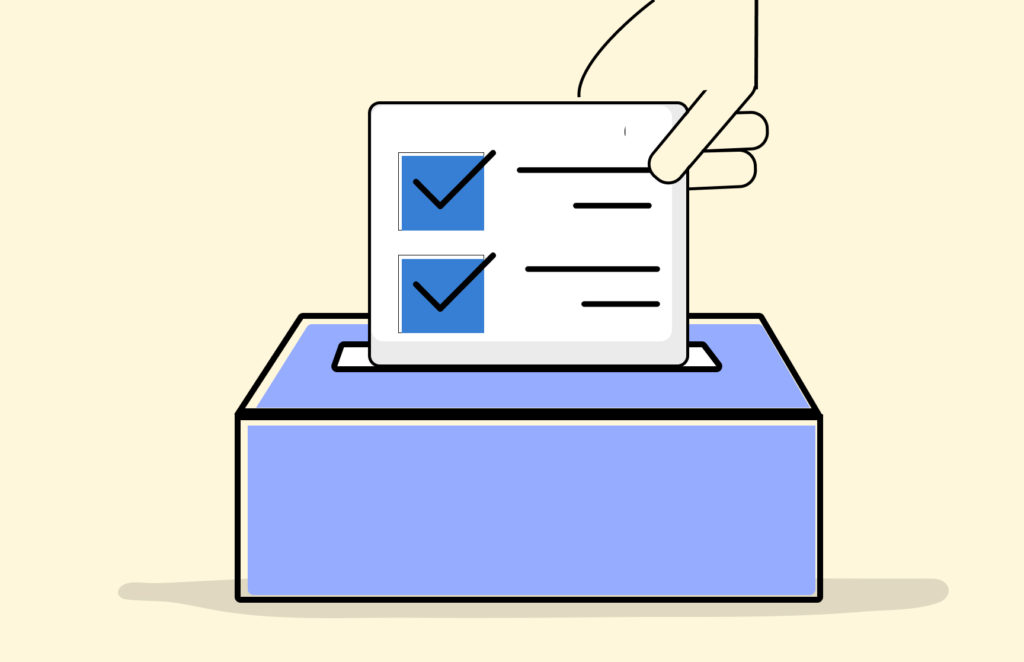

Anonymous Survey: What are its benefits?
Participants have a more comfortable opportunity to give direct and honest comments when the survey is anonymous. Additionally, it’s not always necessary to know who responded to a survey; rather, it’s crucial to compile replies and turn them into useful data.
For practically anyone, whether they are a huge corporation or a student conducting a survey for research purposes, combining identity security and honest feedback can generate a source of important information.
What is an anonymous survey?
A survey is considered anonymous if it does not ask respondents for personally identifying information (PII), such as their name, email address, social security number, or street address.
As a result, it is impossible to identify any values in the responses that might be connected to a participant.
Create an anonymous survey absolutely free
What are the benefits of creating anonymous survey?
Surveys that are anonymous must frequently be conducted in order to gather accurate and sincere input. But whether your participants will think it’s truly anonymous is the real question. Participants may have doubts while answering if anonymity isn’t guaranteed, which frequently results in dishonest answers and distorted statistics.
Whenever possible, you should establish an anonymous survey. In the following ways, it will produce favorable outcomes for you:
- Analysis of the responses can be done by you and your strategy team without prejudice toward known participants.
- Participants will probably feel more at ease giving their open comments.
- Participants don’t need to worry about facing reprisals from management or top leadership in your company.
- You’re more likely to obtain more accurate data and useful insights.
- Surveys that are anonymous tend to get better responses from introverts or people with social anxiety.
- With anonymous questions, you can anticipate higher response rates.
- Transparency is aided by anonymous surveys that respect respondents’ privacy.
- Anonymous surveys enable respondents to concentrate on the question rather than on the possible responses.
- It might increase trust between the respondent and the company as a whole.
Reap the benefits by creating an anonymous survey NOW!
What are the drawbacks of using anonymous survey?
There are numerous things in the world and just like a coin has two sides, in the same way every thing also has pros and cons. An anonymous survey has a lot of benefits but on the other side it is also having some drawbacks which we can’t avoid.
So let us check them too:
- When you perform a follow-up survey to delve deeper into a problem or get feedback on the improvements you’ve made since the initial survey.
- When conducting an inquiry that may require legal action and you need to contact people again.
Consider selecting one person to keep respondents’ names discreet and unknown to all other parties engaged in administering the survey if following up with specific participants regarding their input is crucial to your research.
The ideal candidate for this position can be an HR lead or an outside company.

5 key suggestions for creating anonymous surveys
Here are a few best practices that your company ought to adhere to when developing an anonymous survey.
1. Initially, ask easier and less sensitive questions
A survey that is anonymous is comparable to a blind date. You must initially build a relationship with the respondent if you don’t want them to leave the room quickly.
Therefore, it is preferable to start with simple inquiries before moving on to more delicate ones.
More multiple-choice questions can be included in the survey to make it easier and more enjoyable for respondents to complete.
2. Custom variables shouldn't be used in anonymous surveys
It’s recommended to avoid including questions in anonymous internet surveys that could potentially reveal the respondent’s identity.
Therefore, refrain from using custom variables or data such as Name, Age, Gender, IP address, Preferred Shirt Color, and so on.
3. Ask specific questions
When conducting these surveys, steer clear of ambiguous wording and ask only the questions that are absolutely essential.
That’s because there’s a potential that your query won’t be understood correctly. This could have unanticipated consequences that the questioner did not intend.
Since anonymous surveys are frequently conducted online, it can be challenging to reach the responder for clarification. Therefore, ensure that the questions are well-written, error-free, and clear even to the average person.
4. Make your privacy policies public
Are informed consents required for anonymous surveys?
No, although it’s advisable to include a privacy statement with your survey. This should be displayed before the survey’s launch and contain the information below. Your surveys will receive a greater response thanks to these specifics.
- The justification for going anonymous.
- The reason behind doing the survey.
- The survey’s intended readership.
- What you plan to do with the survey’s results.
- Ensure the respondents’ privacy is protected.
5. Show them the outcomes
You can share the report with your respondents after the survey is complete. This follow-up has the dual advantages of making your responders feel important and interested in learning the final results.
Even those who didn’t respond can receive the survey findings. It will comfort consumers that your company is using the data legally and for legitimate business purposes.
You can choose how and when to view the results in the survey reminders if you only want your respondents to have access.
Use these suggestions to create a free anonymous survey
Conclusion
Personal information isn’t actually required, more like a good-to-have for intelligent analysis, unless you’re undertaking market research, segmenting clients, or following up on a location-specific complaint.
However, as was previously mentioned, there are several circumstances in which anonymous surveys are not only essential but also required.
Consequently, the advice in this blog will assist you in creating safe anonymous surveys. After all, trust is the first and most crucial requirement for gaining knowledge.
FAQs
1. Is an anonymous survey really anonymous?
Employee privacy is supported by private employee surveys. However, certain personnel identities are linked to the response, making them partially identifiable.
Only a select few individuals within the organization have access to this data, despite the fact that these identifiers are visible to a particular number of people.
2. Are Google Forms anonymous?
Google Forms support anonymous submissions, however, the feature needs to be turned on by the form’s creator. Your Google Form responses are anonymous if your name or email address aren’t asked inquiries that call for an answer.






